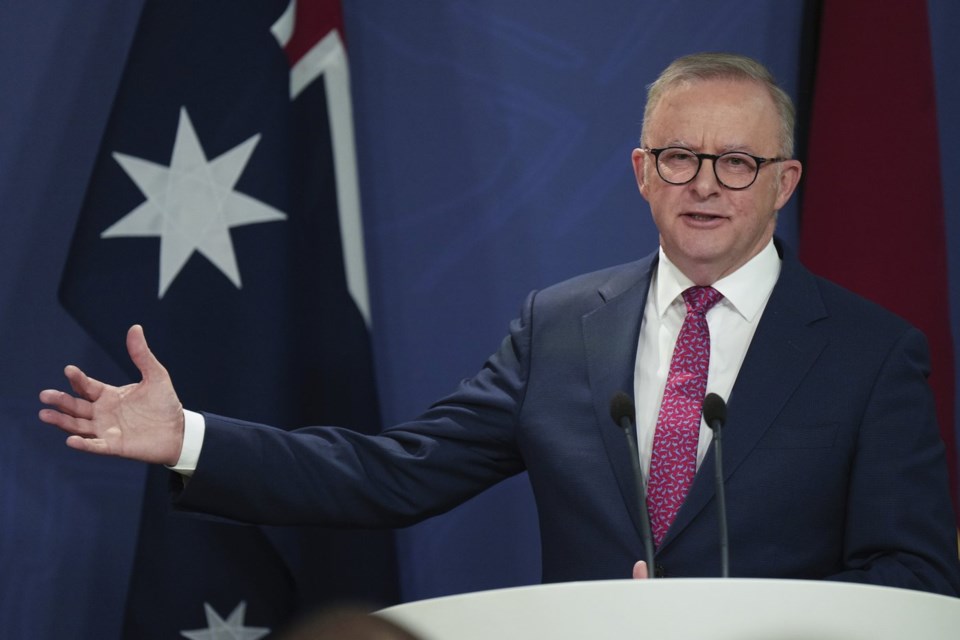MELBOURNE, Australia (AP) — Australians will go to the polls on May 3 for general elections with high costs of living and a shortage of housing likely weighing against the government as Prime Minister Anthony Albanese 's center-left Labor Party seeks a second three-year term.
Albanese drove to Governor-General Sam Mostyn's official residence on Friday to trigger the election and announced the date later at a news conference at Parliament House.
“Over the last few years, the world has thrown a lot at Australia. In uncertain times, we cannot decide the challenges that we will face, but we can determine how we respond,” Albanese said.
“Our government has chosen to face global challenges the Australian way: helping people under cost-of-living while building for the future,” he added.
What’s the likely result?
Many expect opposition leader Peter Dutton’s conservative coalition to pick up seats in the House of Representatives.
An Australian government has not been ousted after a single term since 1931, when the nation was grappling with the Great Depression. But Australian governments almost always lose ground in their second election and Labor only holds 77 of the 151 seats in the House of Representatives, where governments need a majority. Redistributions mean there will be only 150 seats after the next election.
One likely outcome is a minority government supported by independent or minor party legislators.
The 2022 election brought a record 19 lawmakers who were not aligned to either the government or opposition into the Parliament.
Unaligned lawmakers could be crucial to whether Labor or Dutton’s conservative Liberal Party forms Australia’s first minority election since the 2010 election.
What are the issues?
Cost of living pressures have increased across Australia since Albanese came to power, with 12 interest rate hikes since the last election. However, Australia’s central bank reduced the benchmark cash rate by a quarter percentage point to 4.1%, in February in a sign that the worst of the inflationary pressures has passed.
Albanese promised to reduce a housing shortage by building 1.2 million homes over five years, but the 2023 pledge has got off to a slow start.
Dutton has promised to reduce competition for housing by reducing immigration. He would also allow Australians to spend savings in their compulsory workplace pension funds on down payments to buy new homes.
Both parties have pledged to reduce greenhouse gas emissions to net-zero by 2050. But the government would rely on renewable energy sources including solar panels and wind turbines to replace coal and gas, while the opposition would build seven state-funded nuclear power plants.
The opposition also advocates adding new gas-fired power generation to maintain electricity supply until nuclear power arrives.
Rod Mcguirk, The Associated Press


